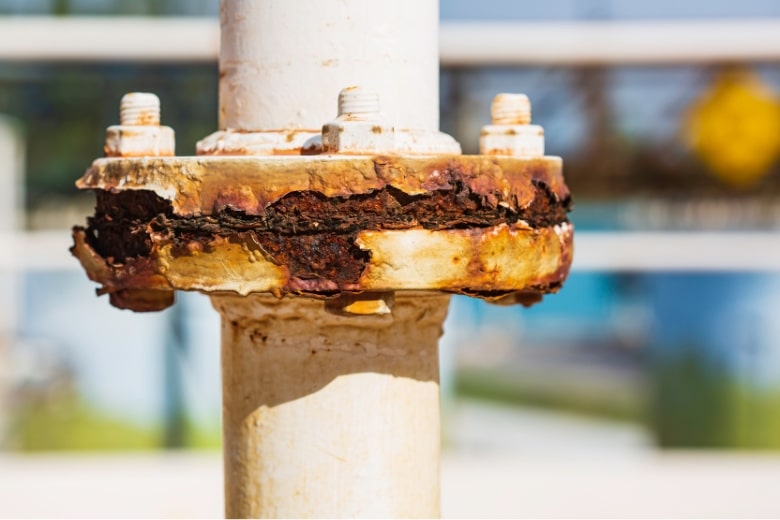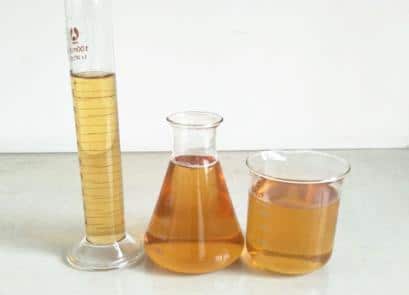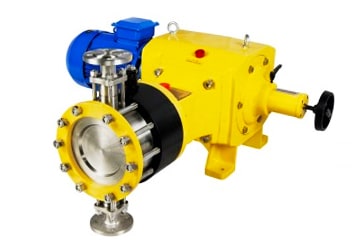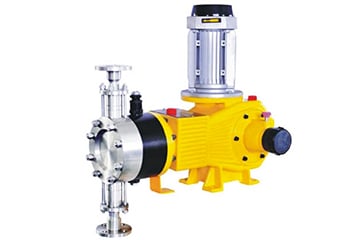Scale Inhibitors For Pump

Scale inhibitors can be used to prevent scale formationTo prevent scale formation, scale inhibitors can be used, which react with salts in the water to make them less likely to be deposited or to form soluble complexes, thus preventing scale formation. Metering pumps can precisely control the amount of scale inhibitor added, adjusting it according to parameters such as water quality, flow rate, and pressure, to ensure that a sufficient concentration of scale inhibitor is formed in the equipment without waste or over-addition.
What is a scale inhibitor?
Scale inhibitors are chemicals used to prevent the formation of limescale or to remove limescale that has already formed. Limescale is a deposit formed when dissolved calcium and magnesium salts in water crystallize upon heating or evaporation and is commonly found in water pipes, kettles, faucets, and so on. In pumps, scale inhibitors are often used to prevent the effects of scale on the pump system. Scale in a pump system can cause narrowing of flow paths, increased frictional resistance, reduced efficiency, and possible damage to pump vanes and other components.

Chemical Composition of Scale Inhibitors
Corrosion Inhibitors: Corrosion inhibitors reduce corrosion on metal surfaces and prevent corrosion and damage to equipment from scale. Common corrosion inhibitors include organophosphates, organophosphate esters, corrosion-inhibiting amines and so on.
Complexing agent: Complexing agent can form stable complexes with metal ions, preventing metal ions from precipitating in water to form scale. Common complexing agents include EDTA (ethylenediaminetetraacetic acid) and NTA (nitrilotriacetic acid) and so on.
Dispersants: Dispersants can prevent solid particles from precipitating in water and keep them dispersed, thus reducing scale formation. Common dispersants include polyacrylamide and polyamide amine.
Alkaline substances: Alkaline substances can neutralize the acidic substances in the water, maintaining neutral or alkaline water and reducing the formation of acidic scale. Common alkaline substances include sodium bicarbonate and sodium hydroxide.
Surfactants: Surfactants can reduce the tension on the surface of the liquid, making it easier for scale particles to be dispersed and remain suspended in the water. Common surfactants include sodium dodecylbenzene sulfonate, octylphenol polyoxyethylene ether, and so on.
Application of scale inhibitors
Industrial water treatment: Scale inhibitors are widely used in boilers, cooling water circulation systems, piping, heat exchangers, and other equipment to prevent scale formation or to remove scale that has already formed, thus keeping the equipment running efficiently.
Boiler chemical treatment: Equipment such as boilers are also often affected by scale, and regular use of scale inhibitors can prevent scale buildup in such equipment.
Cooling water tower circulation: Cooling water tower circulation in industrial production is susceptible to scale, which affects cooling efficiency.
Swimming pools and spas: Scale inhibitors can prevent the formation of scale in swimming pools and spas and keep the water clean.
Scale Inhibitor Advantages In Pumps
- Prevent scale formation: It can reduce the formation of scale in the pump system, which extends the service life of the pump system and reduces maintenance costs.
- Clean the formed scale: It can dissolve the scale, make it easy to remove, and restore the normal operation of the pump.
- inhibitorsinhibitorsinhibitors protectinhibitorsProtect pump parts: Scale inhibitor can protect the internal parts of the pump, such as impellers, bearings, etc., to avoid them being eroded and damaged by scale.
- Improve the efficiency of the pump system: By reducing the formation of scale, scale inhibitors can maintain the efficient operation of the pump system and reduce energy consumption.
How do scale inhibitors act on the pump?
Dosing system: Scale inhibitors are usually stored in liquid form in containers, and the dosing system is responsible for delivering the scale inhibitor from the container to the water system to be treated.
Pump coordination: The pump is one of the key components in the dosing system, which is responsible for extracting and delivering the scale inhibitor from the dosing tank to the water system.
Role of the scale inhibitor: Once added to the water system, the scale inhibitor will react chemically with the salts and solid particles in the water to prevent them from settling on the surface of the equipment and forming scale.
Regular dosing: According to the water quality monitoring results and equipment operation, the dosing system will automatically add scale inhibitors to the water system on a regular basis to maintain stable water quality and normal operation of the equipment.
To sum up, the dosing system and pumps make the scale inhibitor work in the water system, effectively prevent the formation of scale, protect the equipment from corrosion and damage, maintain stable water quality and extend the service life of the equipment.
Metering Pumps for Scale Inhibitors

Diaphragm metering pumps: Diaphragm metering pumps are typically used for precise dosing of chemicals, including scale inhibitors. They are highly accurate and reliable and are suitable for a variety of industrial environments. HAOSH HY-D series hydraulic metering pumps are excellent and reliable chemical dosing pumps, realizing leak-free operation.
Plunger metering pumps: Plunger metering pumps are also commonly used for chemical dosing, and can provide stable flow and pressure. HAOSH HY-ZR Series Hydraulic Diaphragm Metering Pump is a piston pump that provides accurate metering performance with minimal maintenance. It is integrated with a safety valve to prevent overload pressure.

Peristaltic pumps: Peristaltic pumps are often used for dosing in laboratories and industrial areas. They are suitable for a variety of chemicals, including liquids, pastes, and high-viscosity substances.
Magnetic drive metering pumps: These pumps are usually used for dosing occasions that require no leakage, and can effectively control the flow of scale inhibitors.
Summary
In today’s industrial production, the problem of limescale cannot be ignored, but through the application of sensible anti-scaling agents and metering pumps, we can effectively protect the equipment, prolong its service life, increase productivity, reduce maintenance costs and minimize the negative impact on the environment.
HAOSH as a pump manufacturer, has many types of pump products, covering a wide range of hydraulic metering pumps, dosing metering pumps, agitators, chemical dosing system, and as well as pulsation dampers, etc., which are able to satisfy the needs of different industries and processes and provide more choices for customers. Contact us for your customized professional water treatment solutions!
